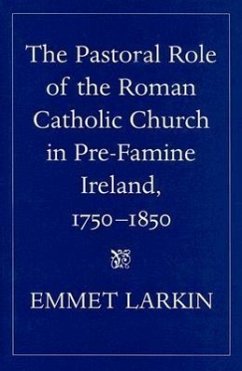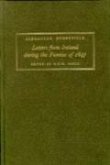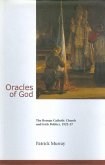In This New Volume, noted Irish historian Emmet Larkin turns his attention to the pastoral challenges the Roman Catholic Church faced in ministering to an exploding population of Irish Catholics in the years before the Great Famine of 1847. The extraordinary increase in the population of Ireland from the mid-eighteenth to the mid-nineteenth century combined with a lack of financial resources available to the church as well as a shortage of clergy and sacred space proved to be crucial for adopting new methods of ministering to the Irish Catholic community. How the Irish Church attempted to respond to these various challenges, and how it was thus uniquely shaped by them, is the central theme of this study. Using impressive statistical and documentary support, Larkin analyzes the population boom, the Irish clergy between 1750 and 1850--its make-up, conduct, and duties--and the shortage of chapels. Larkin describes how the Church in Ireland tried to cope with its problems not only by increasing the number of priests and chapels, but also through the informal sanction of the unique Irish custom of "Stations." The custom involved transforming the Irish secular clergy into a part-time itinerant ministry in a circuit of their parishes for some four months of the year at Christmas and Easter, when they collected their dues and provided their parishioners with catechesis and the sacraments of confession and communion in the designated houses of the more substantial members of their congregations. While the custom of Stations certainly had the pastoral advantage of rationalizing and ameliorating the difficulties in regard to the shortage of clergy and sacred space, it also had the effect offurther rooting religious practice in the home rather than in the church or chapel, which was totally at variance with the Tridentine norm of church-centered practice on the continent, and which rendered the Pre-Famine Irish Church increasingly unique in the Universal Church. Thi








